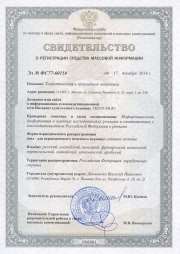|
MAIN PAGE
> Back to contents
Theoretical and Applied Economics
Reference:
Ryabinina E.V., Ivanova O.E.
Gen Z Employee Management model based on meaning
// Theoretical and Applied Economics.
2020. № 3.
P. 50-61.
DOI: 10.25136/2409-8647.2020.3.33654 URL: https://en.nbpublish.com/library_read_article.php?id=33654
Gen Z Employee Management model based on meaning
Ryabinina Ekaterina Vladimirovna
PhD in Pedagogy
Docent, the department of Economics, Management and Law, South Ural State Humanitarian Pedagogical University
454000, Russia, Chelyabinskaya oblast', g. Chelyabinsk, ul. Pr. Lenina, 69, kab. 254

|
ryabinina_ev@mail.ru
|
|
 |
|
Ivanova Ol'ga Ernstovna
Doctor of Philosophy
Professor, the department of Economics, Management and Law, South Ural State Humanitarian Pedagogical University
454000, Russia, Chelyabinskaya oblast', g. Chelyabinsk, ul. Pr. Lenina, 69, of. 254

|
74oliva@list.ru
|
|
 |
|
DOI: 10.25136/2409-8647.2020.3.33654
Received:
09-08-2020
Published:
16-08-2020
Abstract:
The subject of the study was the transformation of the management of employees of a new labor generation based on meaning as the management of organizational event-comprehension and personal significance of work for an employee. The purpose of the study: designing a management model for employees of generation Z based on sense (log management). Research objectives: to substantiate the feasibility of a balanced management system for Gen Z employees based on meaning, to develop a model of log management by Gen Z employees, to determine the sequence and main content of the stages of implementing log management by employees, to justify the risks of implementing log management by employees of a new generation. Special attention is paid to ensuring meaningful work activity of employees as a management value. The research methodology consisted of pragmatic constructivism, the method of critical analysis, the actor's approach, the stakeholder approach, the communicative-pragmatic approach, and the modeling method. В The results of the work. A management model for a new generation of employees has been developed, structured in target and organizational-activity blocks. A special contribution to the research of the topic is the implementation in the management model of the understanding of employees of the relationship between the management of organizational event-understanding and the management of personal significance (benefit). The dialectical connection between the understanding of organizational event-meaning and its benefits for the employee is manifested in meaningful work and meaningful collaboration. The scope of application of the results is the sphere of people management in an organization in its explication from a resource approach to a person to a person as a carrier of meaning. This determines the scientific novelty of the research: the development of a management model for Gen Z employees based on meaningful work aimed at achieving organizational goals while realizing personal benefits. Conclusions. The main results of the study are summarized, the conclusion about the expediency of balanced log management by Gen Z employees, formalized in the developed model, is substantiated; the risks of implementing a log management model are indicated.
Keywords:
Generation Z, meaning, log management, staff, organizational event-comprehension, personal benefit, meaningfulness, model, labor activity, Director
This article written in Russian. You can find original text of the article here
.
Введение
Трансформация управления сотрудниками новой трудовой генерации (Gen Z) как переход к логоуправлению – управлению на основе смысла (термин «смысл» соответствует древнегреческому «λόγος» – разумное основание, здравый смысл, ведущая идея, мысль) – означает отказ от ресурсного подхода к сотруднику как трудовому, физическому или человеческому ресурсу и признание работника носителем смысла и «строителем» организационной реальности.
Данная трансформация выстраивается в рамках акторского подхода к управлению человеком в организации, в соответствии с которым сотрудник рассматривается субъектом управления [4] и внутренним стейкхолдером, заинтересованным в развитии компании.
В контексте управления сотрудниками на основе смысла преобразуется фактическая деятельность организации в сфере HRМ, деятельность в управлении проблемами и организационными коммуникациями. Данные изменения могут выступить благоприятными факторами развития организации в условиях хаотичности и нестабильности внешней среды.
Предмет исследования
Трансформация управления сотрудниками трудовой генерации Z на основе смысла учитывает общеорганизационный и личностно-значимый компоненты. Смысл должен опираться на эмпирическую основу, о смысле можно говорить «лишь по отношению к определенной задаче, к определенной разрешаемой проблеме» [14, с. 322].
Моделирование управления сотрудниками Gen Z на основе смысла релевантно современной «VUCA-среде» (волатильной, неопределенной, сложной, амбивалентной [18, p. 1], требующей прояснения и понимания основания и значения событий.
Целесообразность обращения к управлению сотрудниками на основе смысла определяют и факторы организации. К ним мы относим следующие.
1. Фактор менеджмента. Запрос руководства на внедрение новых подходов и инструментов управления организацией предполагает состояние готовности учредителей и руководящего состава к трансформации системы и переходу на новый уровень управления – смыслами. Руководитель, как ключевой элемент, реализующий процесс трансформации системы управления персоналом, должен обладать психологической готовностью, в структуре которой:
- мотивационный компонент (внутреннее побуждение, определяющее личностное желание изменения);
- социальный компонент (коммуникативные навыки высокого уровня: ораторское мастерство, навыки убеждения);
- интеллектуальный компонент (оценка возможных рисков, анализ сложных ситуаций, понимание механизмов смыслопорождения);
- эмоциональный компонент (эмоциональная зрелость в реагировании на сложные ситуации: рефлексия, эмпатия, активное слушание).
Необходимо диагностировать готовность руководителя к изменениям, например, используя метод оценки готовности лидера к управлению культурными изменениями [2, с. 216], исследовать ценностные ориентиры руководителей, например, [6] и анализировать их соответствие организационным event-смыслам, включая их конгруэнтность ценностям организации.
2. Трудовые отношения. К данному организационному фактору мы относим отношения в процессе трудовой деятельности деструктивного характера, требующие осмысления и изменений в управлении людьми в организации. А именно: неблагоприятный психологический климат в коллективе, в частности, выраженный в конфликте поколений, проблемах в самоопределении представителей новой генерации [10].
3. Организационно-трудовые ценностные установки работников поколения Z, выраженные концептами понимания и осознания смысла рабочих задач и итоговых целей деятельности; «самости» (Selfie) – важности самореализации; рабочего гедонизма – получения удовольствия от работы; сотрудничества и анти-иерархичности рабочей среды; гибкости и краткосрочности – условий работы и проектов [5].
Методы исследования
Прагматический конструктивизм определяет управление осмыслением – пониманием организационного event-смысла и выявления и проектирования личностно-значимого смысла практически полезным для компании и для сотрудника. Определение сотрудника субъектом управления и носителем смысла реализовано в рамках акторского подхода. Стейкхолдерский подход позволил спроектировать участие в логоуправлении субъектов, заинтересованных в развитии компании. Коммуникативно-прагматический подход установил полезность управления осмыслением в организационном сообществе с учетом коммуникативного характера понимания смысла. Применением метода моделирования разработана схема логоуправления Z-сотрудниками, обеспечивающая возможность получение нового знания в HRM. С помощью метода критического анализа выявлены проблемные моменты во внедрении модели управления работниками Gen Z.
Основные результаты
Проектирование модели логоуправления выстраивается как обращение к управлению осмыслением сотрудников: общим организационным event-осмыслением и личной значимостью труда. Модель логоуправления целесообразно выстраивать как сбалансированную систему управления сотрудниками Gen Z: уравновешенность понимания организационного event-смысла (смысла событий «для организации»: смысла выполняемых рабочих задач, трудовых отношений, осознание собственного вклада в достижение целей организации и ответственности за общий результат работы) и оценки сотрудником личностной значимости понятого организационного event-смысла (осознанное извлечение смысла событий «для себя»). Матрица сбалансированной системы логоуправления сотрудниками представлена в таблице 1.
Таблица 1. Матрица сбалансированной системы логоуправления сотрудниками GenZ.
|
№
|
Наименование подсистемы
|
Приоритет важности
|
|
Варианты
|
|
I
|
II
|
III
|
IV
|
|
1
|
Осмысление сотрудником организационного event-смысла
|
+
|
+
|
-
|
-
|
|
2
|
Оценка сотрудником личной значимости организационного event-смысла
|
+
|
-
|
+
|
-
|
Наиболее перспективным для решения текущих задач и достижения стратегических целей организации является вариант I, позиции которого следует поддерживать, чтобы предупредить развитие вариантов II – IV.
Перевешивание организационного event-смысла (вариант II) может ускорить профессиональное выгорание сотрудников.

Рисунок 1. Результат приоритета важности организационного event-смысла
Напротив, перевешивание личной значимости (пользы) смысла (вариант III) может привести к конфликту интересов сотрудника и организации (ненадлежащее исполнение работником трудовых обязанностей, нарушение законных интересов компании, этического кодекса).

Рисунок 2. Результат приоритета важности личной значимости (пользы) организационного event-смысла
Наименее перспективным является вариант IV – ситуация, когда сотрудник не понимает смысла выполняемых задач и трудовых отношений и, следовательно, не осознает их возможную пользу для себя – личностного и профессионального развития, Well-being. Возможное следствие данной ситуации – «организационные путешествия» сотрудников, изначально не настроенных на долгосрочную трудовую деятельность в одной организации. Так, согласно исследованиям 2019 года среди американских Z, в 2020 году планировали остаться на нынешней работе 23 % 18–20-летних, 50 % опрошенных указали, что будут искать новую работу, и еще 27 % не определились с решением [16]. Покинуть нынешнюю работу в ближайшие два года планируют 78 % американских сотрудников Gen Z [20] и 53 % российских представителей Gen Z [17]. С целью удержания молодых работников руководитель должен оказать содействие в личностной и профессиональной реализации, помогая извлекать из организационного смысла его значение – смысл, полезный для конкретного работника.
Для решения данных вопросов нами спроектирована модель управления сотрудниками Gen Z на основе смысла (рисунок 3), имеющая два основных блока: целевой (внешние факторы, цель, ценности, принципы, функции и методологическая основа) и организационно-деятельностный (управление осмыслением, значимость для сотрудника, методы управления, осмысленный труд и коллаборация, продуктивность, параметрическая оценка, развитие, результат). Реализация требований, традиционно предъявляемых к модели (заключение возможности получения нового знания, предоставление новой информации об объекте при изучении модели [8, 15]) управления людьми в организации обеспечивается диалектической связью между общим организационным event-осмыслением и оценкой личностной значимости события, между осмысленностью и результативностью.

Рисунок 3. Модель управления сотрудниками GenZ на основе смысла
На практике модель управления на основе смысла представляет последовательную реализацию взаимосвязанных стадий. Блок-схема логоуправления сотрудниками представлена на рисунке 4.

Рисунок 4. Блок-схема логоуправления сотрудниками GenZ
Субъектами, определяющими целесообразность внедрения логоуправления (стадия 1) выступают учредитель и менеджмент высшего звена. В разработке смыслоформ (содержания шаблонов форм смысла для feedback, типа: «я понимаю, что мой труд приносит пользу компании», «мне не понятно разделение зон ответственности с коллегами», «я понимаю, в чем смысл рабочей задачи», «я не понимаю, зачем я это должен делать», «моя работа наполнена смыслом», «моя работа кажется мне бесцельной и бессмысленной», «я сознательно устанавливаю смысл трудовой деятельности», «я не придаю смысла своей работе, просто выполняю» и т. п. С целью фасилитации человекомерных барьеров коммуникации (стадия 2) могут участвовать учредитель, менеджмент всех уровней иерархии (высшего, среднего, лоу-звена), фокус-группы заинтересованных сотрудников, внешние стейкхолдеры (заказчики и иные заинтересованные стороны).
Стадии организации соответствуют внутриорганизационные мероприятия (off-line собрания, стриминг); приглашения консультантов (философа, психолога); формирование разновозрастных кросс-функциональных команд для решения организационных проблем, анти-иерархичности взаимодействия; разработка инструментария feedback с сотрудниками (настройка платформы для проведения on-line опросов, например, Google Forms и т. д., стикеры для обсуждения по модели Daily Scrum Meeting: что сделано? Что будет сделано? Что мешает сделать? И т.д.).
Стадия внедрения управления сотрудниками на основе смысла в текущую деятельность выстраивается на основе реализации индивидуальных (проработка экзистенциальных концептов личности, life-коучинг по определению смыслов, картирование) и групповых (тренинг, проективные техники, групповой коучинг по профессиональным целям, групповая поддержка, командообразование) методов управления [11]. Обе группы методов нацелены на внутренние механизмы смыслопорождения личности (замыкание жизненных отношений, индукцию смысла, идентификацию, инсайт, столкновение смыслов и полагание смысла) [7, с. 133].
Данная стадия включает:
- метод контрольных списков в event-осмыслении – стимулирование руководителем размышления сотрудника на вопросы: «в чем смысл (труда, выполняемых рабочих задач, трудовых отношений, условий труда)», «где, как и зачем я могу это применить?»;
- составление framework события, учитывающего, например, ролевые характеристики персонала и процессы в сфере HRM и связи между ними, вклад сотрудника в достижение целей организации и т. д.;
- философский (организационный) консалтинг, основанный на сократическом диалоге с целью активизации критического рационального рассуждения в сообществе [3], проблематизации и концептуализации, направленности на решение проблем на ценностно-смысловом уровне;
- выявление личностно-значимого смысла: направление руководителем сотрудника идентифицировать в организационном смысле пользу: «что это мне даст?»: применение смыслоформ и возможность проектирования собственного варианта ответа (может проводиться в форме диалогического общения);
- психологическое консультирование (коучинг);
- метод feedback (оперативной, прозрачной и этичной, конструктивно-критичной, релевантной цели и текущей деятельности, конкретной) с сотрудниками, в соответствии с инструментарием стадии 3.
Конечная цель внедрения каждого из методов – осмысленный (личностно значимый) труд сотрудника и, соответственно, продуктивность его работы, оцениваемая руководителями.
Стадия параметрической (параметрически-объективной) оценки и совершенствование логоуправленияосновывается на гибкой методологии оценки по параметрам (от древнегреческого термина «παραμετρε» – «соразмеряю»), определенным и согласованным в сообществе акторов.
Примером инструмента трансляции смысла в оценки деятельности сотрудников может выступить подход OKR (Objectives and Key Results: цели и ключевые результаты), «полезный для усиления фокусировки за счет ясности, обеспечения структурирования команд и повышения результативности и амбициозности» [19] и позволяющий понимание индивидуального вклада работника в достижение целей компании.
Гибкость OKR обеспечивается за счет кратких, как правило – ежеквартальных циклов целереализации на индивидуальном, командном и уровне компании, регулярной обратной связи и обновлений, при стремлении к «вертикальной W-образной согласованности: цели распространяются от топ-менеджмента вниз; департаменты и команды дают обратную связь; цели дорабатываются; команды отвечают на вопрос: "На какой вышестоящий KR мы можем повлиять и как?"» [9]. OKR реализуется в условиях прозрачности информации о целях, достигаемых показателях, методах оценки и контроля, результатах и коммуникаций между сотрудниками – вертикальных и горизонтальных.
OKR-подход релевантен неустойчивой и хаотичной современной среде, а также – концептам организационно-трудовых ценностных установок сотрудников поколения Z. Кроме того, непрерывная параметрическая оценка деятельности сотрудников отражает характерный для Gen Z «синдром упущенной выгоды», «FOMO – Fear of Missing Out» [12, с. 187].
Не опровергая целесообразность гибкого измерения, следует обратить внимание на риск сплошной параметрической оценки для развития управления человеком. В этой связи вполне уместно обращение к квантовому эффекту Зенона (КЭЗ), указывающему на влияние измерения на процессы в системе, описанному, например, в [1]. Управление человеком в организации не является предопределенным процессом, поскольку его результаты объективно предполагают вариативность развития событий. «Сходство природы неопределенности в процессах управления и квантовых процессах позволяет использовать методологию и математический аппарат квантовой теории для решения задач управления» [13, с. 1590]. В контексте КЭЗ постоянное параметрическое измерение результатов продуктивности сотрудников будет поддерживать существование системы управления человеком в организации в зафиксированном состоянии. Однако, обеспечение стабильности, при котором распад системы становится невозможным, не позволит ей развиваться, поскольку для развития необходим элемент хаоса, реализуемом в творческом обновлении параметрических показателей. Кроме того, следует учитывать и «износ» человека как физического, когнитивного и эмоционального ресурса, выраженный через утрату личностно значимых смыслов труда, рабочих задач, трудовых отношений в снижении показателей результативности и эффективности деятельности.
Стадия параметрической оценки и совершенствования логоуправления является ключевой для коррекционной работы руководителей, она позволяет выявлять слабые звенья и прорабатывать «застревающие» моменты. Положительные результаты, выраженные динамикой процессов, приводят, соответственно к вознаграждению сотрудников, их развитию и возможному карьерному росту. Результатом управления осмыслением сотрудников является общаяудовлетворенность трудом, лояльность и вовлеченность сотрудников в процессы организации, сокращение текучести кадров, улучшение социально-психологического климата коллектива, повышение эффективности труда.
Апелляция к оппонентам
Началом внедрения данной модели логоуправления сотрудниками является готовность руководителя к трансформации HR-управления. Соответственно, отсутствие данного фактора определяет утопичность обращения к смысло-основанному управлению как ценности менеджмента. Кроме того, внедрение модели логоуправления сотрудниками может быть сопряжено с иными человекомерными барьерами, определяющими риски практики управления на основе смысла. К ним мы относим: отсутствие понимания и ясности постановки задач руководителем; отсутствие прозрачности в информации и в коммуникациях в организации; конформизм и отчуждение работников от организации и результатов труда; сплошной характер параметрической оценки деятельности сотрудников. Решение проблемы барьеров требует, в первую очередь, управленческих действий по их преодолению или минимизации, а также – заслуживает отдельного исследования.
Выводы и научная новизна
Таким образом, целесообразно сбалансированное управление сотрудниками Gen Z на основе смысла, формализованное в данной модели. Моделирование управления Z-сотрудниками на основе смысла учитывает факторы внешней и внутренней среды организации. Данная модель логоуправления трудовой силой нового поколения реализуется при подходе к человеку как субъекту управления и носителю смысла.
Научная новизна исследования определена разработанной моделью управления сотрудниками Gen Z на основе смысла, представляющей онтологизацию HR-управления, в фокусе которой – основания труда, отношений, развития, оценки и личностной пользы. Ключевой моделируемого логоуправления в сфере HRM является осмысление – организационное и личностно значимое. Диалектическая связь между элементами осмысления, осмысленностью и результативностью реализует требования к модели.
Модель логоуправления предполагает, что управленческие усилия должны быть направлены на стимулирование осмысленности труда и коллаборации при сбалансированности понимания организационного event-смысла и оценки сотрудником личностной пользы, рассматриваемого с позиции повышения эффективности достижения организационных целей. Вместе с тем, существуют риски внедрения модели логоуправления сотрудниками, обусловленные человекомерными барьерами.
References
1. Vedrinskii R. V. Kvantovyi effekt Zenona // Sorosovskii obrazovatel'nyi zhurnal. 1997. № 9. S. 71-77.
2. Garsiya S., Dolan S. Upravlenie na osnove tsennostei. Korporativnoe rukovodstvo po vyzhivaniyu, uspeshnoi zhiznedeyatel'nosti i umeniyu zarabatyvat' den'gi v KhKhI veke. M.: Pretekst, 2008. 313 s.
3. Ivanova O. E. Organizatsionnyi konsalting kak upravlencheskii instrument resheniya problem / Kommunikativnye strategii informatsionnogo obshchestva. Trudy XI Mezhdunarodnoi nauchno-teoreticheskoi konferentsii, 25–26 oktyabrya 2019 g. SPb.: POLITEKh-PRESS, 2019. S. 236-239.
4. Ivanova O. E. Transformatsiya kontseptsii upravleniya chelovekom v organizatsii: aktorskii podkhod // Teoreticheskaya i prikladnaya ekonomika. 2019. T. 3. № 3. S. 55-64.
5. Ivanova O. E., Ryabinina E. V. Upravlenie sotrudnikami Gen Z na osnove smysla // Liderstvo i menedzhment. 2020. Tom 7. № 3. doi: 10.18334/lim.7.3.110605.
6. Kabalina V. I., Reshetnikova K. V. Tsennosti rossiiskikh menedzherov i korporativnye tsennosti // Rossiiskii zhurnal menedzhmenta. 2014. Tom 12. № 2. S. 37-66.
7. Leont'ev D. A. Psikhologiya smysla: priroda, stroenie i dinamika smyslovoi real'nosti. 2-e, ispr. izd. M.: Smysl, 2003. 487 c.
8. Morozov K. E. Matematicheskoe modelirovanie v nauchnom poznanii / K. E. Morozov. M.: Mysl', 1969. 212 s.
9. Rogachev S. KPI uzhe nedostatochno: kak otslezhivat' kratkosrochnye tseli komandy. 31 iyulya 2020. URL: https://pro.rbc.ru/news/5f19599c9a79474aee80268e?utm_medium=trigger&utm_source=email&utm_campaign=trial_15day_nocustom&utm_term=5f19599c9a79474aee80268e (data obrashcheniya: 03.08.2020).
10. Ryabinina E. V. Konflikt pokolenii v sisteme trudovykh otnoshenii // Biznes. Obrazovanie. Pravo. 2019. № 3 (48). S. 161-165.
11. Ryabinina E. V., Ivanova O. E. Teoreticheskii analiz mekhanizmov upravleniya smyslami kak novogo metoda upravleniya personalom v organizatsii // Liderstvo i menedzhment. 2020. Tom 7. № 4. doi: 10.18334/lim.7.4.110687.
12. Stillman D. Pokolenie Z na rabote. Kak ego ponyat' i naiti s nim obshchii yazyk / D. Stillman, I. Stillman; per s angl. Yu. Kondukova. M.: Mann, Ivanov i Ferber, 2018. 272 s.
13. Surov I. A. Kvantovaya teoriya: metodologiya i matematika upravleniya / Sbornik trudov XIII Vserossiiskogo soveshchaniya po problemam upravleniya VSPU-2019, Moskva 17–20 iyunya 2019 g. M.: Institut problem upravleniya im. V. A. Trapeznikova RAN, 2019. S. 1589-1593.
14. Tondl L. Problemy semantiki / L. Tondl. M.: Progress, 1975. 485 s.
15. Shtoff V. A. Modelirovanie i filosofiya / V. A. Shtoff. M.: Nauka, 1966. 302 s.
16. Achievers / 2020 Engagement & Retention Report: Failure to Engage. URL: https://3enw232wev6r2iiyl51giig3-wpengine.netdna-ssl.com/wp-content/uploads/2020/01/012220_Achievers_ERR_124.pdf (data obrashcheniya: 01.07.2020).
17. Deloitte Millennial Survey 2020. URL: https://www2.deloitte.com/ru/ru/pages/about-deloitte/articles/millennial-survey-2020.html?id=ru:2em:3cc:4dcom_share:5awa:6dcom:about_deloitte (data obrashcheniya: 10.07.2020).
18. International Business in a VUCA World: The Changing Role of States and Firms / ed. by R. van Tulder, A. Verbeke, B. Jankowska. Bingley, UK: Emerald Group Publishing, 2019. 536 r.
19. Iwan F. About the impact of working with OKRs – Insights from the OKR Report 2019. November 6, 2019. URL: https://www.workpath.com/en/magazine/about-the-impact-of-working-with-okrs-insights-from-the-okr-report-2019/ (data obrashcheniya: 03.08.2020).
20. Survey: Small acts of recognition help younger workers feel fulfilled at work. Sept. 9, 2019. URL: https://www.hrdive.com/news/survey-small-acts-of-recognition-help-younger-workers-feel-fulfilled-at-wo/562393/ (data obrashcheniya: 01.07.2020).
Link to this article
You can simply select and copy link from below text field.
|
|





